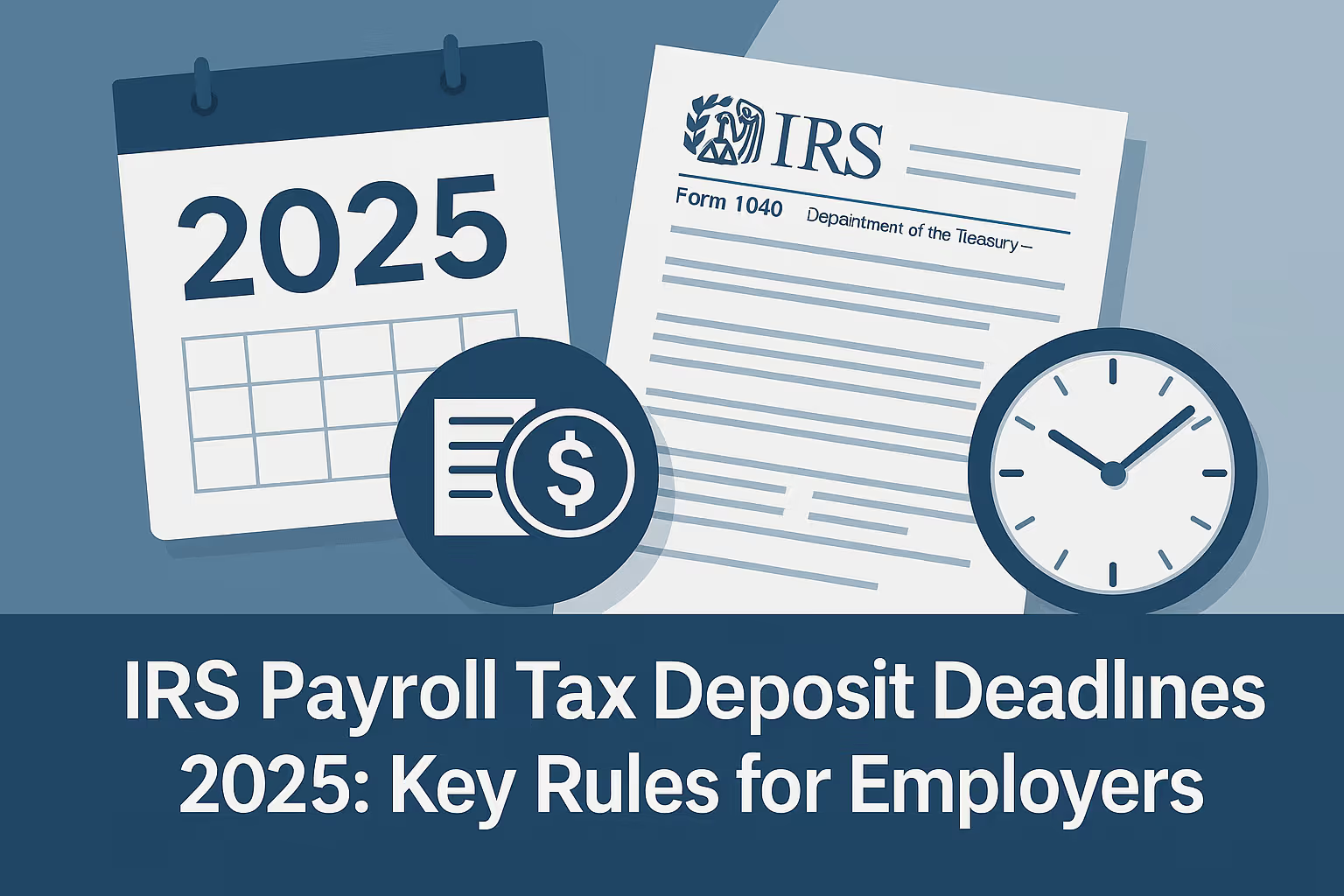
The Internal Revenue Service is reminding businesses of their IRS payroll tax deposit deadlines for 2025 and urging them to review their obligations early in the calendar year. Missing a required deposit can trigger steep fines, so it's essential to understand how the system works and which payroll tax deposit schedule applies to each business.
Employers are required to collect and remit various employment taxes that fund federal programs. These include federal income tax withheld from employees’ wages and Social Security and Medicare contributions. High earners may also be subject to the additional Medicare tax, which is withheld separately. These comprise the bulk of payroll taxes that form part of routine business operations.
All federal tax deposits must be submitted through an approved federal tax payment system. Most use the IRS’s electronic federal tax payment platform, also known as EFTPS, but businesses can also arrange payments through a financial institution, payroll software, or a trusted tax professional.
The IRS sets deposit rules for each employer’s total tax liability during a designated lookback period. This determines whether a business follows a monthly or semiweekly deposit schedule.
In addition, if any employer accumulates $100,000 or more in tax deposits on a single day, they must immediately deposit employment taxes by the next business day, regardless of their regular deposit schedule.
Employers carry ongoing payroll tax responsibilities, sharing the burden with their workers. While employers and employees contribute to Social Security and Medicare taxes, some liabilities fall entirely on the business. For instance, the Federal Unemployment Tax Act (FUTA tax) covers the federal unemployment tax, which is paid solely by employers. Deposits are required quarterly once FUTA tax liability exceeds $500. Companies must also account for state unemployment and income taxes, separate from federal rules.
Compliance also involves filing accurate returns. Businesses must file payroll tax returns and issue Form W documents to report employees' wages, income, FICA taxes, and payroll deductions. This ensures the Social Security Administration and the federal government can track taxable wages and verify that federal tax payments have been made correctly.
Special categories, such as agricultural employees, may follow adjusted reporting requirements depending on compensation paid and the type of work performed.
The IRS clarifies that employers should review their payroll deposit schedule at the start of each calendar year. “Before the beginning of each calendar year, you must determine which of the two deposit schedules you are required to use,” the agency states in its official Employer’s Tax Guide. Businesses are also reminded to file electronically, whether directly through EFTPS or with the help of payroll service providers.
Late federal tax payments incur escalating penalties based on how long deposits remain overdue. For businesses already managing slim margins, these fines can add up quickly. Reviewing the correct payroll deposit schedule—whether following deposit schedules monthly or semiweekly—reduces the risk of missed deadlines.
To stay compliant, most employers are encouraged to ask their financial institution about payment options, rely on professional payroll service tools, or seek guidance from a trusted tax professional. These steps help employers meet their payroll tax obligations, avoid errors in tax returns, and protect against penalties tied to unpaid payroll tax responsibilities.
These resources outline every step required to calculate income tax withholding, handle deposit employment taxes, and remain compliant with federal law across the calendar year.
By William Mc Lee, Editor-in-Chief & Tax Expert—Get Tax Relief Now